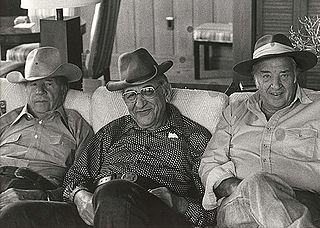A Quote by Jimmy Carter
Then when [ISIS] moved into Iraq, the Sunni Muslims didn’t object to their being there and about a third of the territory in Iraq was abandoned.
Related Quotes
I've laid out a plan for how we keep people safe here at home, and I've laid out a plan of how we wage war and win by denying ISIS territory overseas. We must deny them their territory because the territory that they've conquered because Hillary Clinton and Barack Obama declared victory in Iraq and against every generals advice withdrew all of our troops, leaving a vacuum, weaponry, territory for ISIS to conquer, that territory, their caliphate, is that from which they draw legitimacy, potency, credibility. We have to deny them that territory.
The Western alliance should have supported the Sunni opposition against the Assad regime from the beginning. As far as Iraq is concerned, if it had stayed stable the way it was in 2008, IS would not have been able to expand in Iraq the way they did. The mistake was that Barack Obama withdrew the armed forces from Iraq too fast.
Iraq has been overrun by ISIS because Hillary Clinton failed to renegotiate, Hillary Clinton, Hillary Clinton, Hillary Clinton failed to renegotiate a status of forces agreement...And so we removed, we removed all of our troops from Iraq and ISIS was able to be conjured up in that vacuum and over run vast areas of Iraq.
And on this issue of the Shia in Iraq, I think there's been a certain amount of, frankly, Terry, a kind of pop sociology in America that, you know, somehow the Shia can't get along with the Sunni and the Shia in Iraq just want to establish some kind of Islamic fundamentalist regime. There's almost no evidence of that at all. Iraq's always been very secular.
Ending torture and tyranny in Iraq was not a mistake. Supporting democracy in Iraq is not a mistake. Helping the long-suffering Muslims of Iraq who now seek to live democratically is not a mistake. In the long, long history of the Middle East, this breakthrough may one day be ranked as a dramatic turning point in regional history.
During the Gulf War, I remember two little third grade girls saying to me - after I read them some poems by writers in Iraq - 'You know, we never thought about there being children in Iraq before.' And I thought, 'Well those poems did their job, because now they'll think about everything a little bit differently.'


































